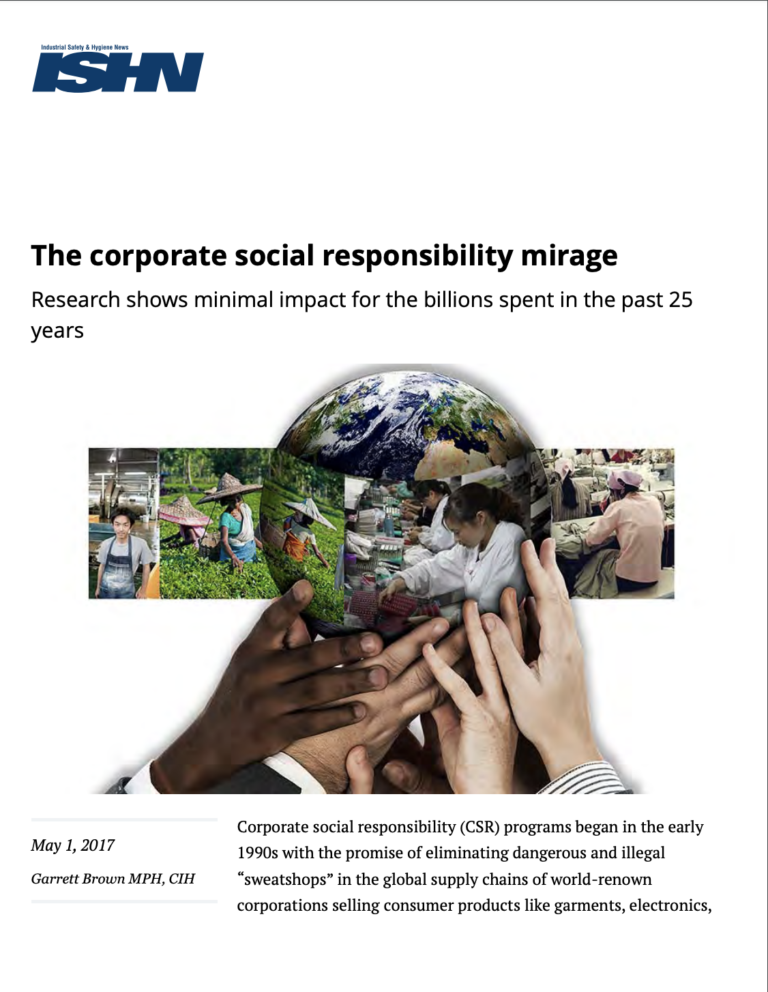An article by Garrett Brown MPH, CIH
Corporate social responsibility (CSR) programs began in the early 1990s with the promise of eliminating dangerous and illegal “sweatshops” in the global supply chains of world-renown corporations selling consumer products like garments, electronics, sports shoes and toys. Twenty-five years later, CSR is an international multi-billion-dollar industry, but unsafe, illegal conditions continue in supply chain factories throughout the world.
The lack of progress on the factory floor over two decades has been registered in the steady stream of investigative reports by news media outlets, non-governmental organizations, management consultants, and business school researchers. While international brands have benefited from positive CSR public relations with customers and shareholders, millions of supply chain workers still face lives of long hours of work; low wages, unpaid work and stolen wages; lack of legal labor rights; sexual harassment of women workers; and unsafe and unhealthy working conditions.

